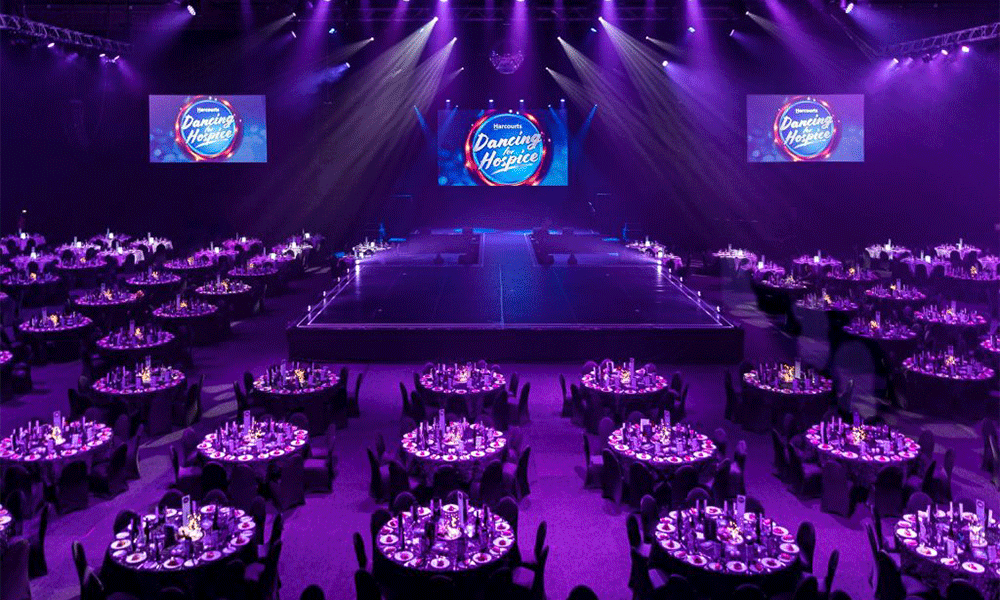Insider tips on planning the perfect event from Event Coordinator Katie.

I’m Katie, an Event Coordinator at Trustpower Baypark, here to give you all the insider details on planning an incredible event. But first, a little about me: My journey at Baypark started right here at Trustpower Arena over three years ago. After graduating university with a degree in Sport & Recreation, and completing an internship with the Event Operations team at Eden Park, I found myself in Tauranga ready to step up in the world of events. I did a stint as a Venue Attendant (VA) working on the ground during events at Baypark, then joined the Event Operations team and have been here ever since! To this day I have a lot of gratitude for my time as a VA and believe it separates me from your average coordinator, providing me with such an appreciation for the teams on the ground.
I’ve been in my role as an Event Coordinator for two and a half years and since then I’ve worked on a variety of events including Magic Netball Games, Bay Dreams and the Tauranga Homeshow. A few years in the game I’ve started to wrap my head around the wild world that is events and have a few great tips to share. So, I give you my top 5 tips for planning a successful event:
Organise Yourself
If there is anything I can recommend before you get started planning your event it is to be organised. Seems self-explanatory, I know. But you’d be surprised at the difference it makes having all your event details stored together.
File your emails accurately, save your contacts’ numbers, and coordinate your event details in one place so everyone on your team is on the same page. A great way to do this is by saving your work as a live document, this way you can update as you go and everyone will know they are looking at the most up-to-date copy of your plan. Eliminating confusion and miscommunication from the get go is crucial to your success.
Find What Works for You and Your Teams
This might sound cliche, but we’re all different. We communicate, learn and do things differently. Once you learn your strengths, adapt the way you work to suit them. For example, I’m a visual learner so a floor plan/site map is my godsend when it comes to working out an event setup, but give me a typed document with zero maps or imagery, and it might take me a bit longer to wrap my head around the vision.
The same goes for your team; help people do their work well by playing to their strengths. You can even delegate some of the things you struggle with to someone who doesn’t, it's a win-win situation for everyone involved!
Collaborate
So, now the real planning begins and remember; collaboration sparks creativity! To start the planning process, I like to get together with my key teams and brainstorm what the plan is and how we’re going to make it happen. These teams often include the event organisers, stadium operations, catering, AV, security and cleaning. You will lead the discussion, but stay open to the ideas and suggestions of your teams. At Bay Venues we put our faith in the specialised teams we have on site, such as Bay Catering and Bay Audio Visual. After all, they’re the experts!
Communicate
Even once the collaborative planning effort is completed, remember to stay in touch with your teams. Especially the ones who will be there on the day! There is only so much information that can be handled through a live document and some things get missed, so include people in email trails, discuss your ideas in meetings or pick the phone to chat through something that’s proving hard to understand. A fresh pair of eyes (or ears!) can be the best way to solve a problem or figure out a more efficient way of working.
Have a Plan B
Now that you have a thoroughly detailed plan in place, you might think your event is rock solid. However, if we’ve learnt anything over the last two years, it’s that things can change very quickly. Events have so many moving pieces and can often be unpredictable, so try to think of the possible things that could impact your event’s ability to go ahead. Think weather, think layout, think timing. What could go wrong and how will you mitigate it quickly? I promise you, in the future, you see that the extra time was well spent.
Now that you’re an event planning expert, you can click here to find out how to successfully execute your event on the day!
Contact us to start planning your event today.
MORE FROM BAY VENUES